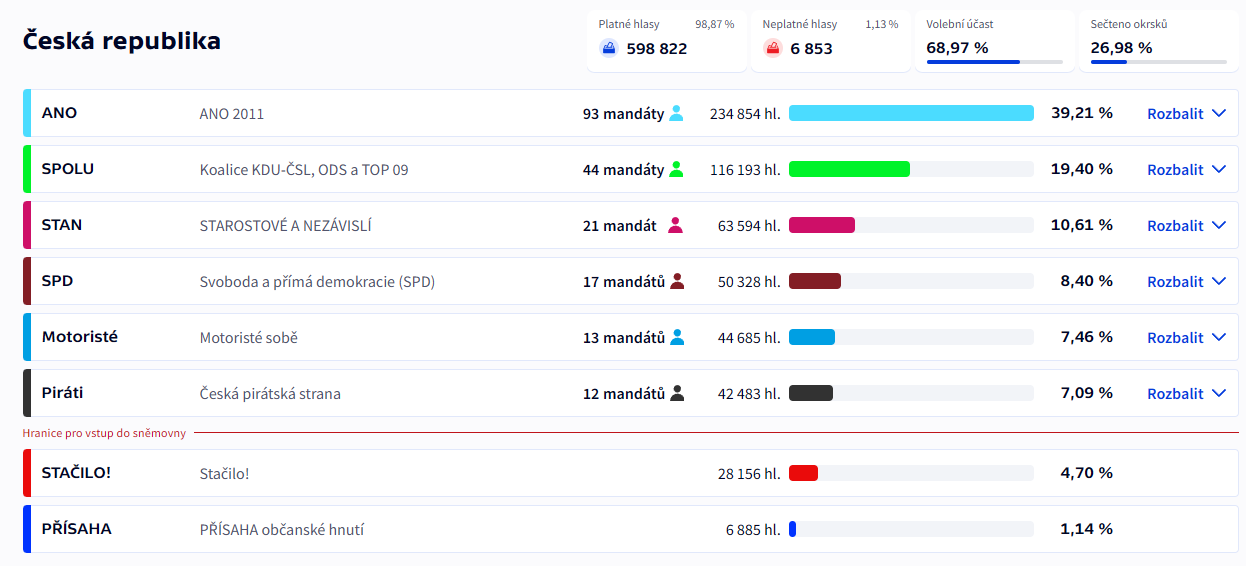Czech parliamentary elections: Who's taking the lead
 Photo: Andrej Babiš, leader of the ANO movement and former Prime Minister of Czechia (Getty Images)
Photo: Andrej Babiš, leader of the ANO movement and former Prime Minister of Czechia (Getty Images)
Parliamentary elections in Czechia concluded on Saturday, October 4, with polling stations now closed and the first results already released, reports news portal CT24.
According to the portal, 26.98% of ballots had been counted as of 4:28 PM local time, and one party has already emerged as the frontrunner.
The leading party is the ANO movement, led by Czech billionaire and former Prime Minister Andrej Babiš, who opposes military and financial aid to Ukraine, including arms deliveries.
The far-right SPD, one of ANO's main potential allies, is also among the top five parties. The movement is led by Tomio Okamura, a Japan-born politician who has called for reconsidering Czechia's membership in the EU and NATO and has repeatedly criticized aid to Ukraine.
As of 4:28 PM, the results were as follows:
- ANO – 39.21% (preliminary 93 seats);
- SPOLU coalition of incumbent Prime Minister Petr Fiala – 19.40% (44 seats);
- STAN – 10.61% (21 seats);
- SPD – 8.40% (17 seats);
- Motoristé – 7.46% (13 seats);
- Pirati – 7.09% (12 seats).
Two other parties, Stačilo! and Přísaha, also took part in the election. Neither crossed the 5% threshold needed to enter parliament, winning 4.70% and 1.14%, respectively.

Photo: The initial results of Czechia's parliamentary elections
Czechia's elections
The elections in Czechia were held from October 3 to 4, and the outcome could influence the country's foreign policy, as Prague has been a consistent supporter of Ukraine.
Polls had predicted ANO's lead, with its leader often described as pro-Russian. Analysts attribute ANO’s growing support mainly to economic dissatisfaction. One of the most unpopular moves by Prime Minister Fiala's government was canceling pension indexation to reduce the budget deficit, which affected the country’s largest voting group — pensioners — and cost the ruling coalition much of their backing.
Despite his ambitions, surveys indicate that Babiš is unlikely to secure a parliamentary majority.
A detailed breakdown of projected outcomes, potential coalition scenarios, and what these elections could mean for Ukraine can be found in RBC-Ukraine's article.

